Search Results
Showing results 1 to 15 of 15

What Does Spit Do?
Source Institutions
Some animals can swallow food whole, but humans have to chew. In this activity, learners will investigate what saliva does chemically to food before we even swallow.

Digestive System: A Kinesthetic Lesson
Source Institutions
In this simulation, learners act out each digestive function of the organs, tissues, and cells in the digestive tract.
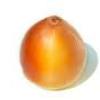
DNA From an Onion
Source Institutions
In this genetics activity, learners extract DNA from an onion, using detergent solution, a food processor, and rubbing alcohol. They will also discuss genetic engineering of plants.
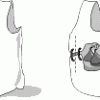
The Jelly Bean Problem (JBP)
Source Institutions
In this activity, learners are challenged to eat some candy as a cell would need to as well as to think about some of the problems that arise when a cell ingests food.

Plankton Feeding
Source Institutions
This activity provides a hands-on experience with a scale model, a relatively high viscosity fluid, and feeding behaviors.
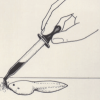
Water Breathers
Source Institutions
In this activity and/or field trip, learners investigate the water currents that aquatic animals create when they breathe, feed, and propel themselves through water.
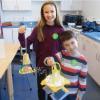
Engineer A Bird Feeder
Source Institutions
In this activity, learners of all ages will design a functional bird feeder using familiar, every day materials.
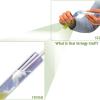
How to Extract DNA From Anything Living
Source Institutions
In this genetics activity, learners discover how to extract DNA from green split peas.
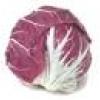
Cabbage Chemistry
Source Institutions
In this chemistry activity (page 5 of the PDF), learners make an acid-base indicator using cabbage. Learners then explore how various subtances react with this indicator.

Shimmering Lenses
Source Institutions
In this activity, learners use Jell-O to explore lenses. Learners cut Jell-O into convex and concave lens shapes and examine how light exits each lens in a darkened room.
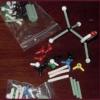
Molecular Menagerie
Source Institutions
In this activity, learners use molecular model kits to construct familiar molecules like lactose, caffeine, and Aspirin.

Caution! Wildlife Crossing
Source Institutions
In this design challenge, learners use their creativity and imagination to design and test a wildlife crossing for their favorite animal.
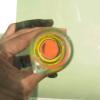
Rotating Light
Source Institutions
In this activity, learners explore what happens when polarized white light passes through a sugar solution.
What Molecules Make the Holes in Bread?
Source Institutions
In this activity, learners will discover why there are holes in bread.

Wintergreen
Source Institutions
In this outdoor, winter activity, learners find living green plants under the snow and determine the light and temperature conditions around the plants.
